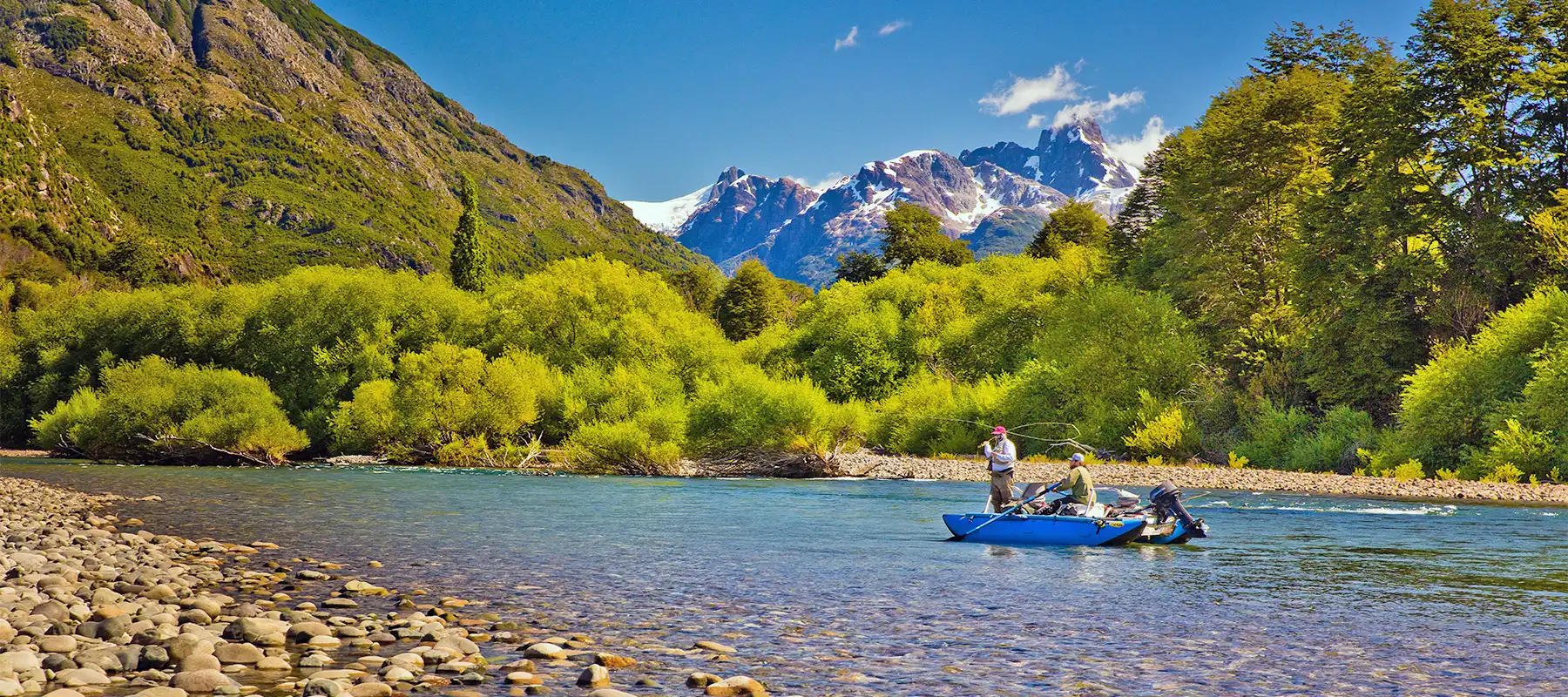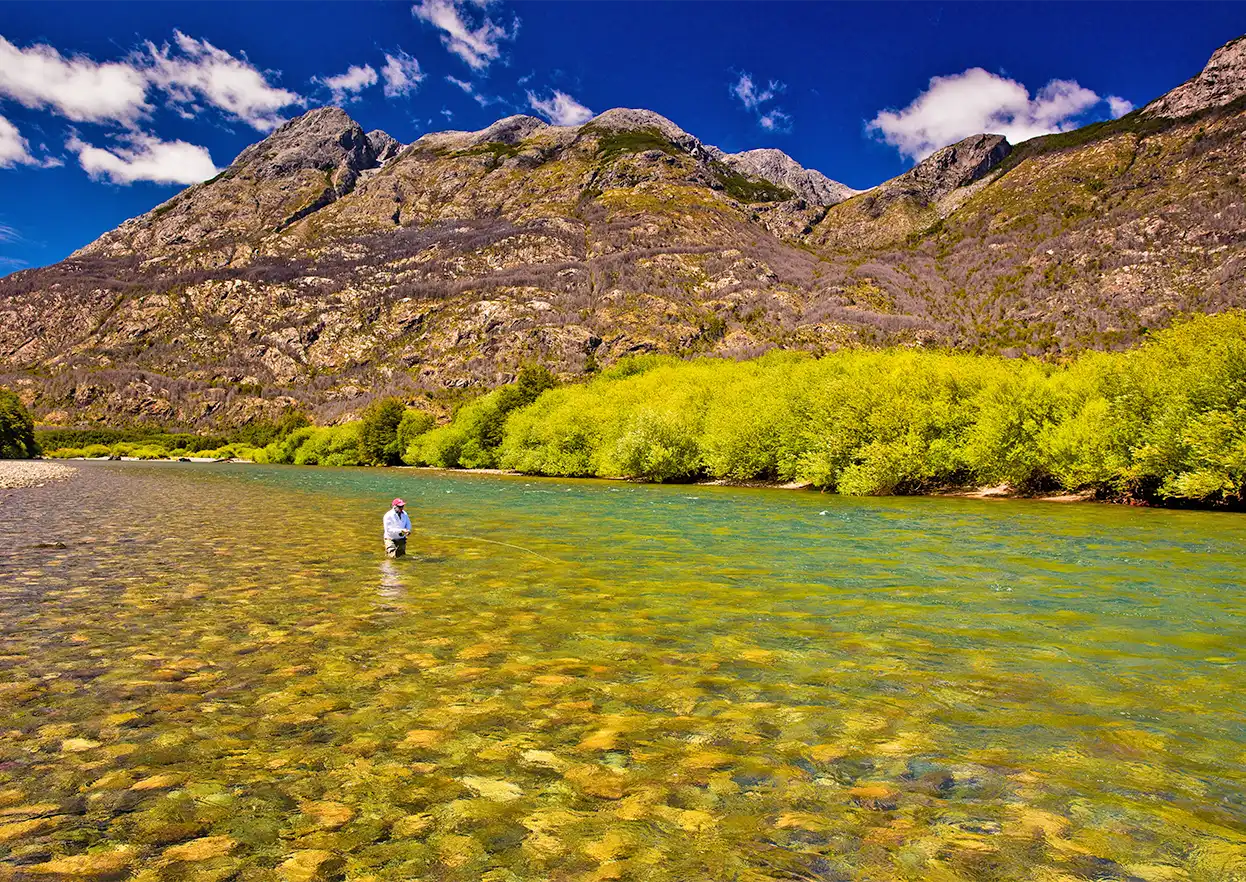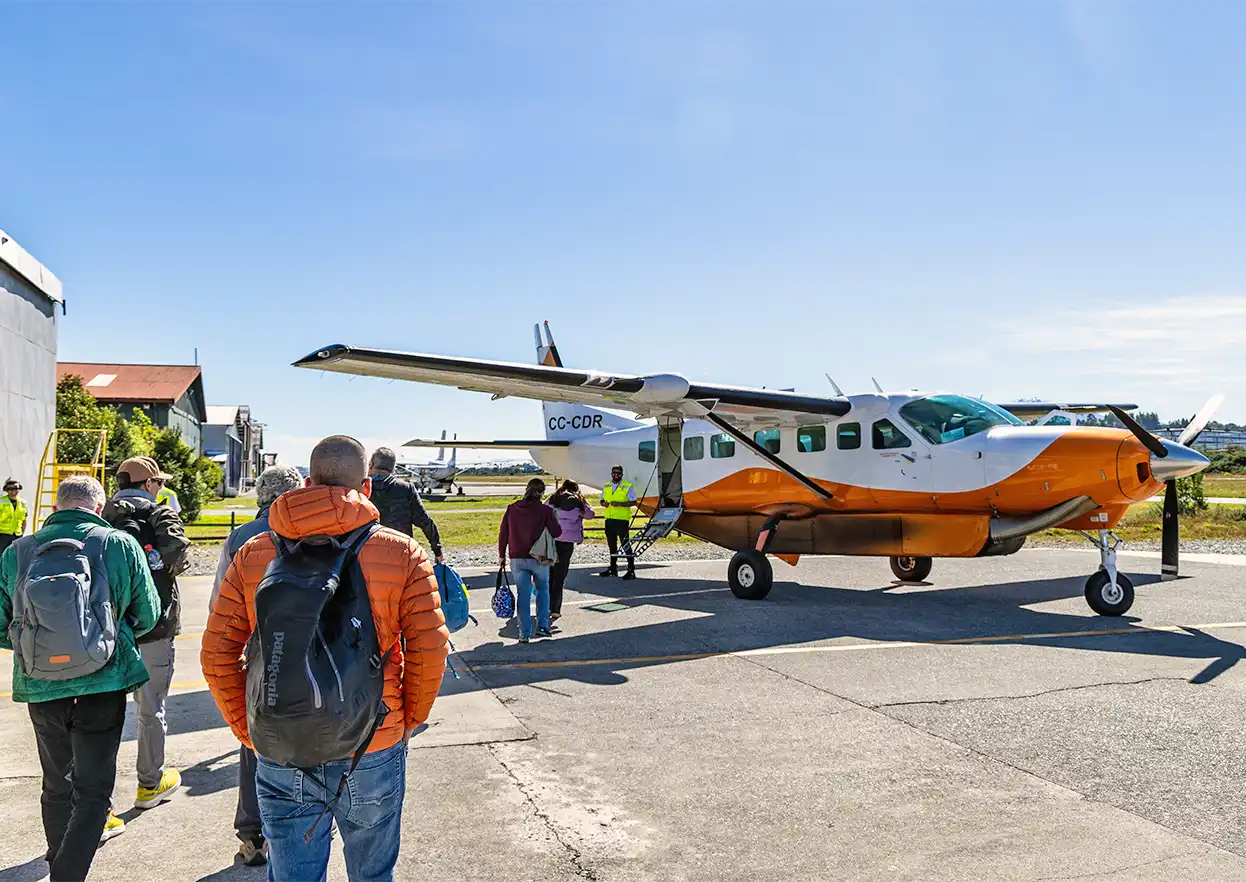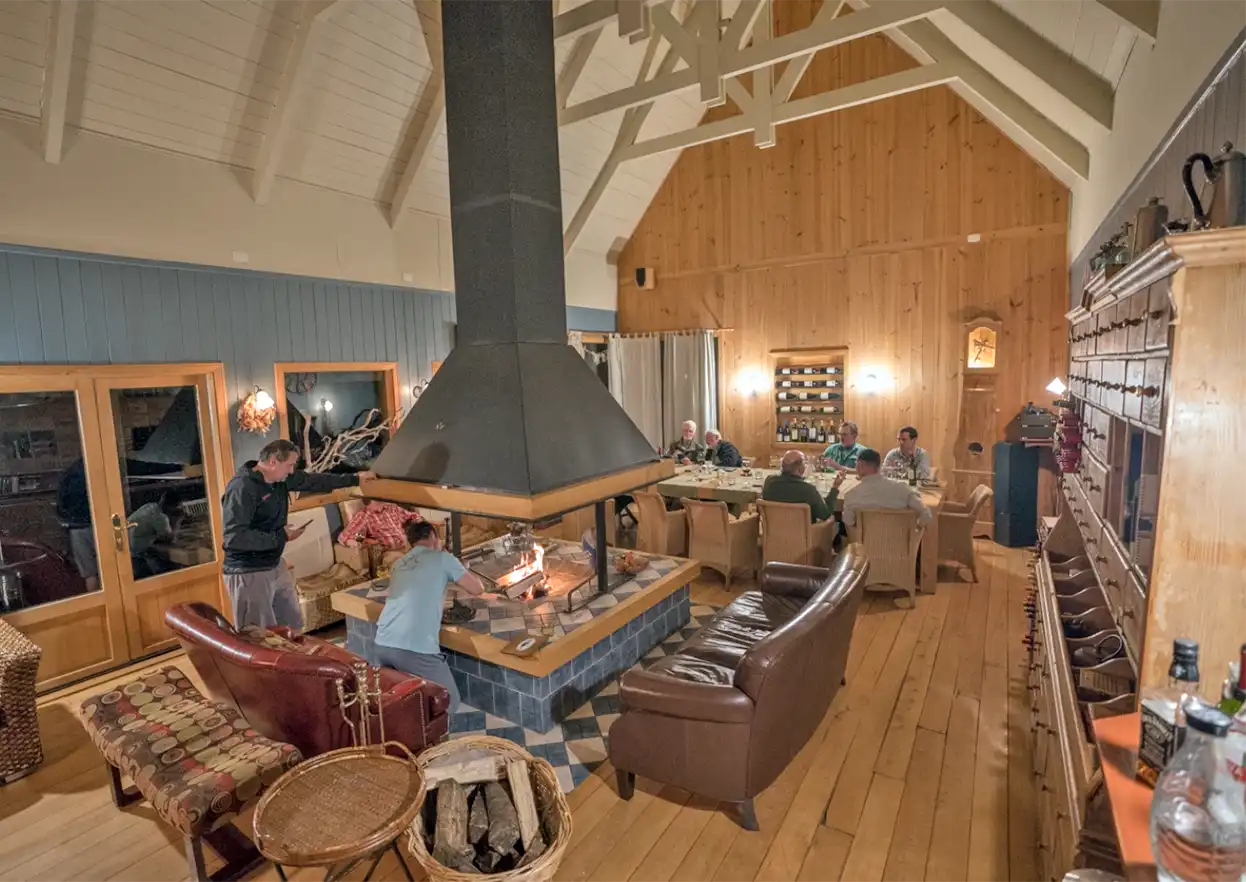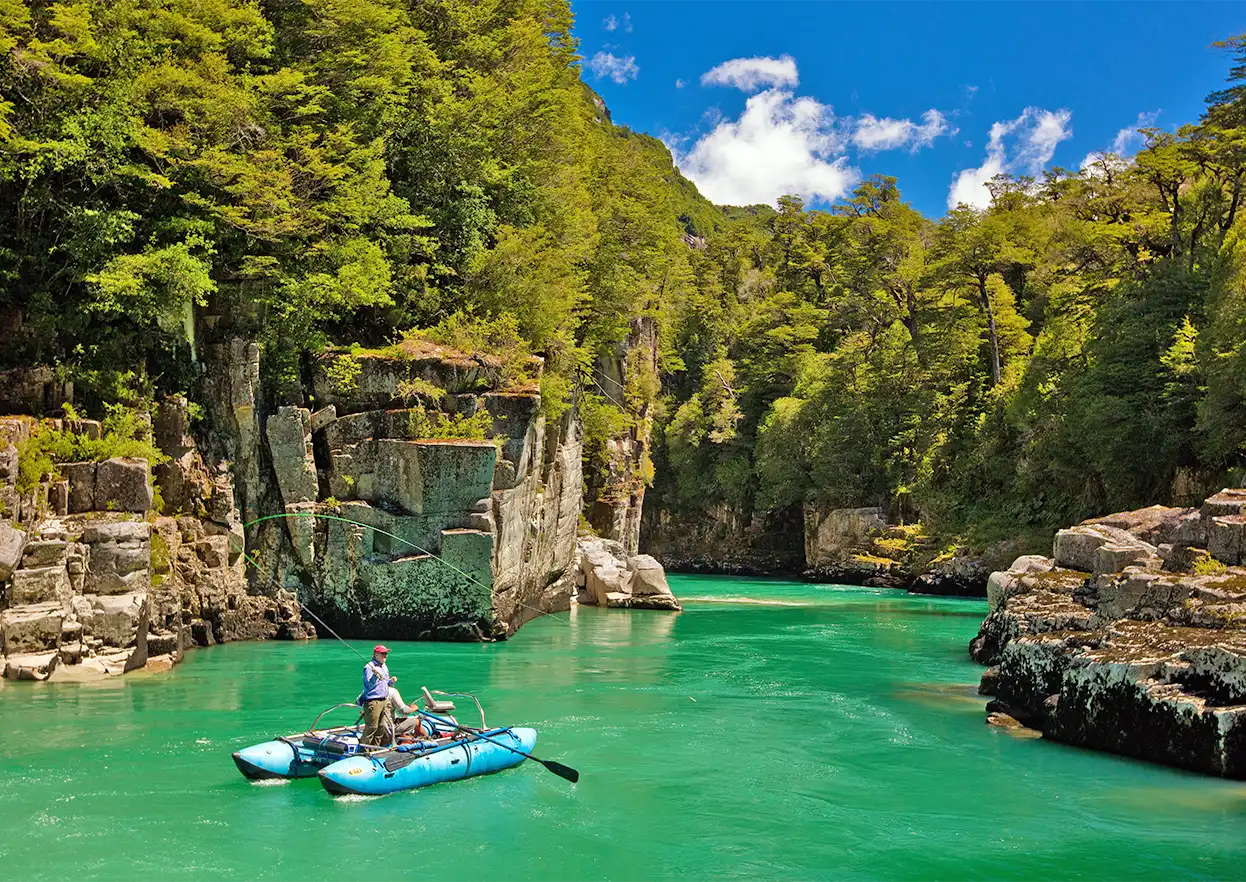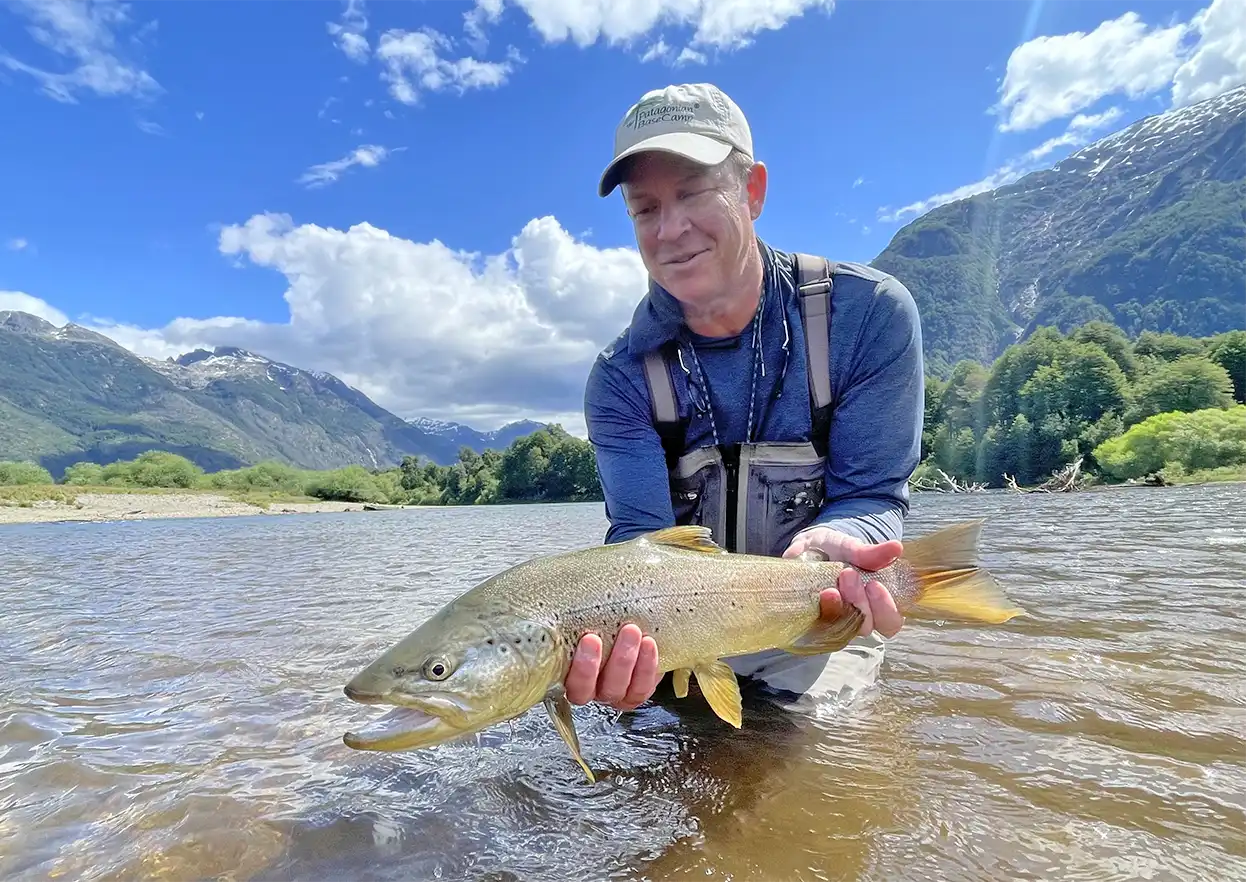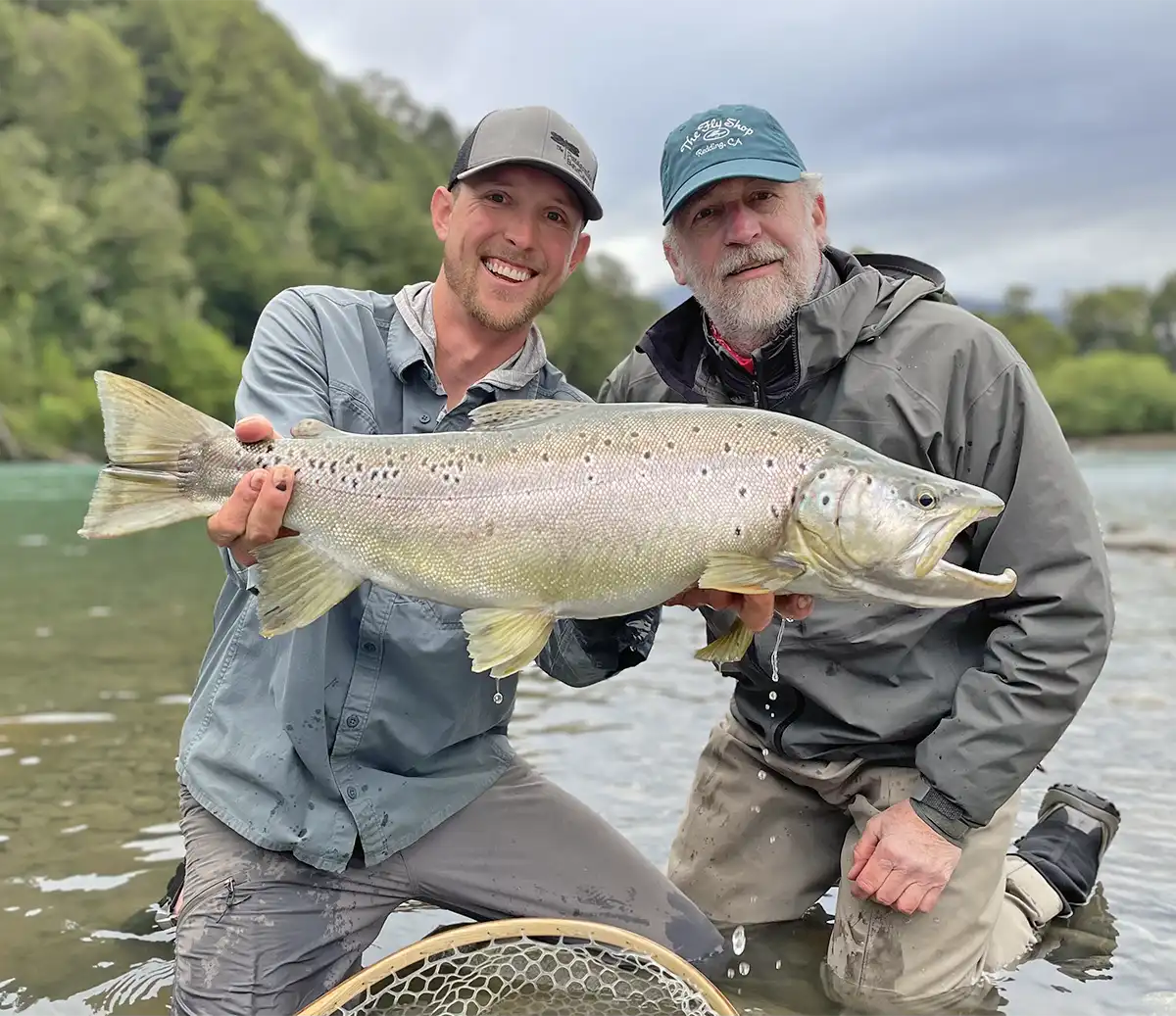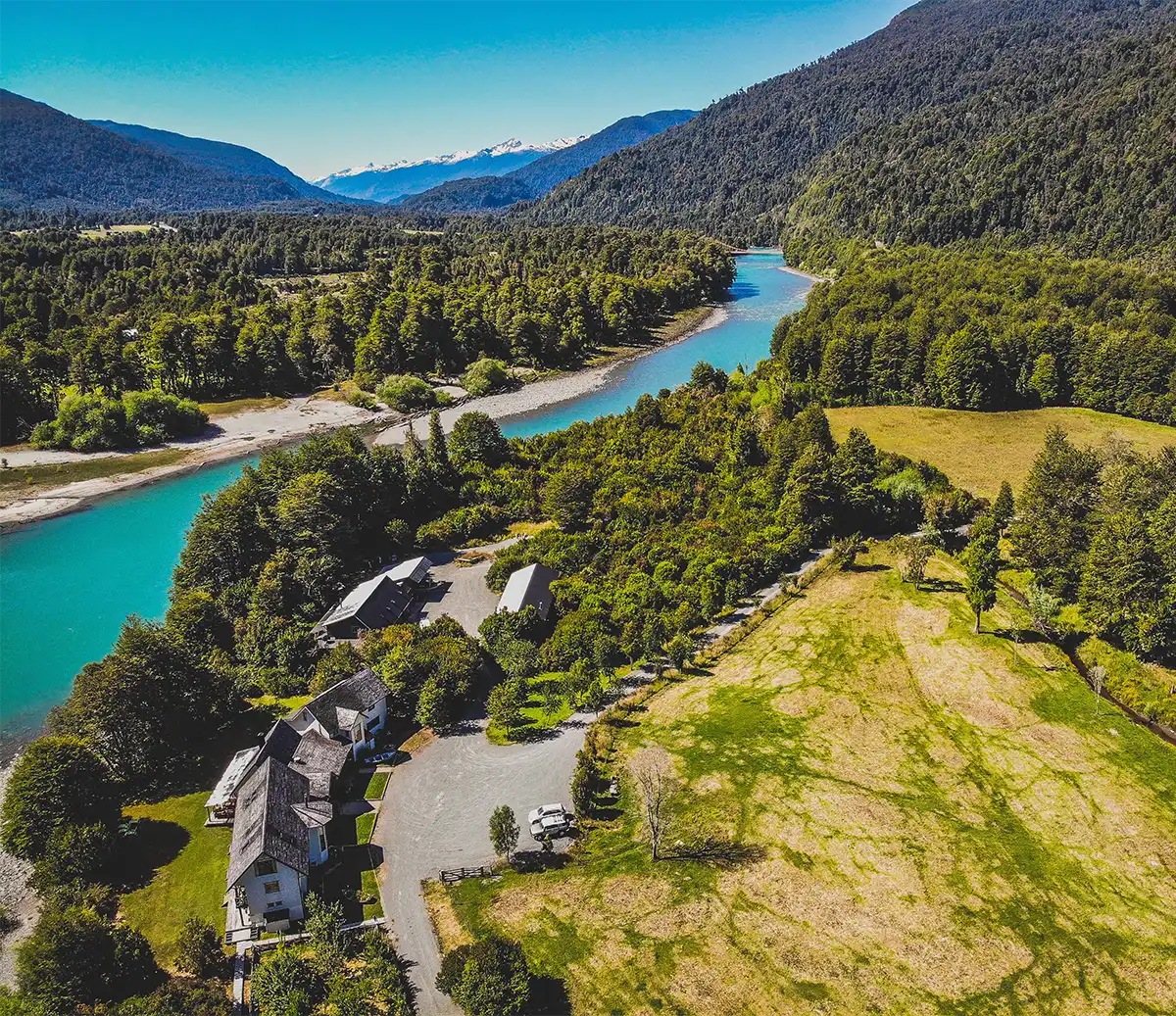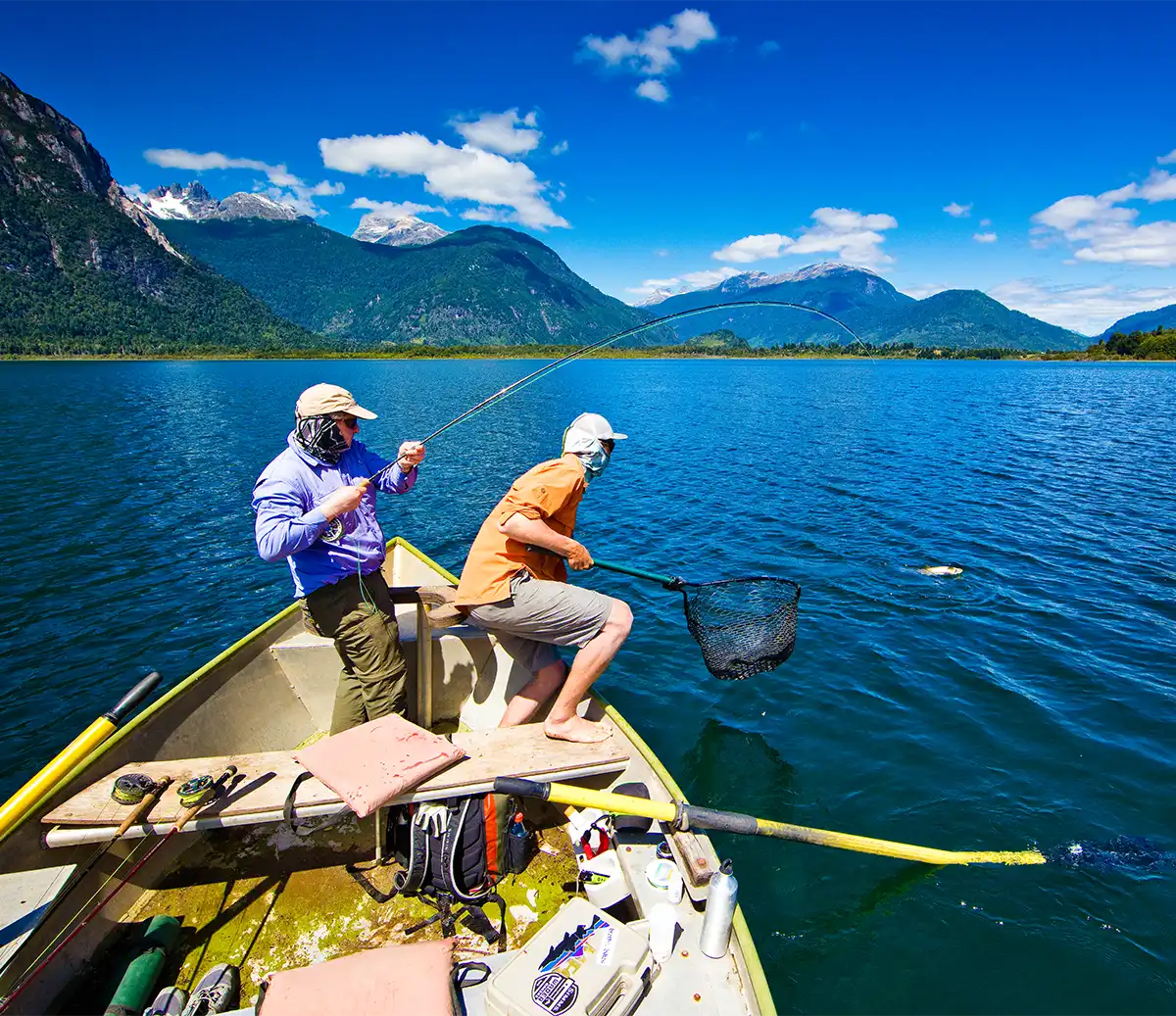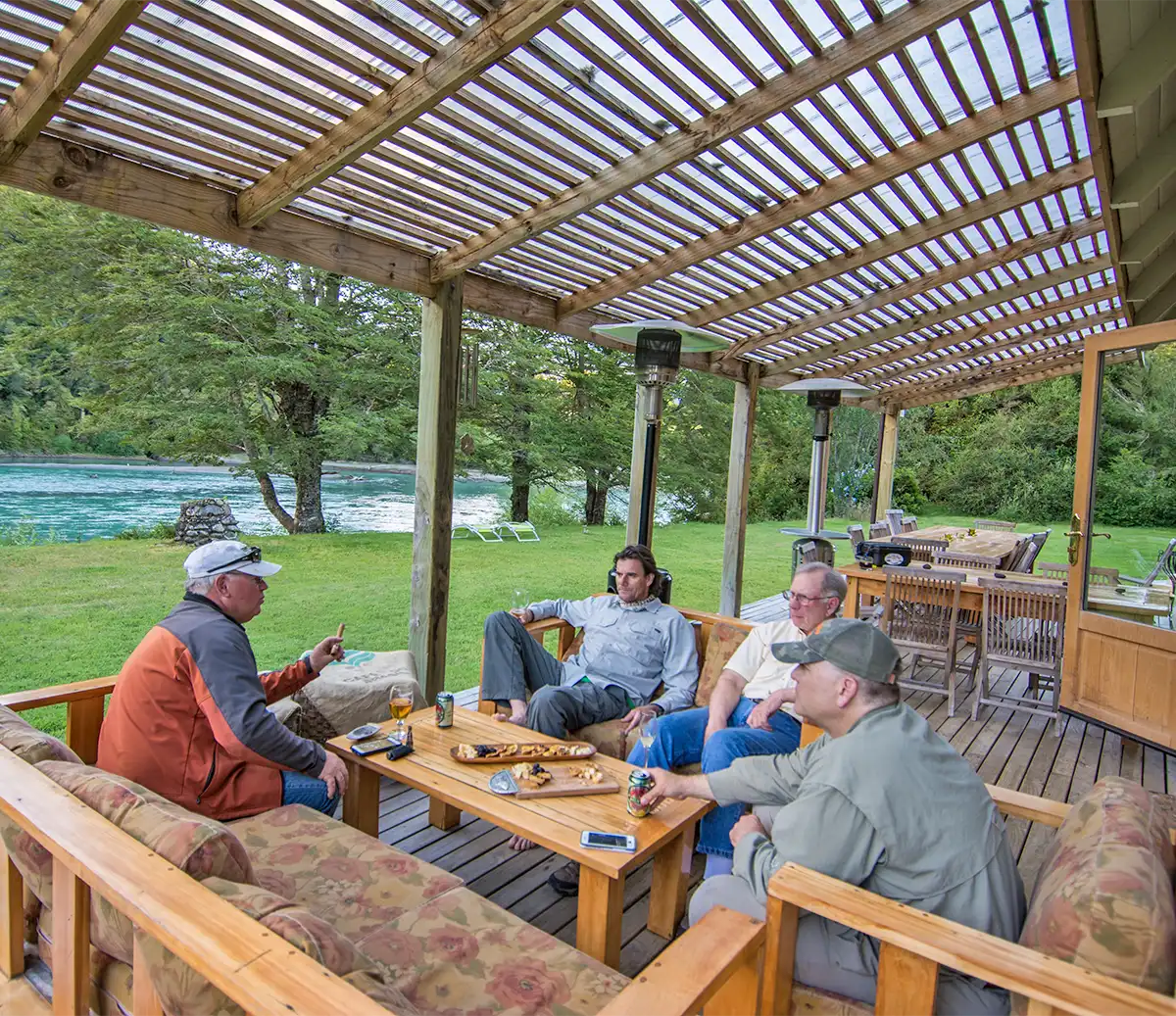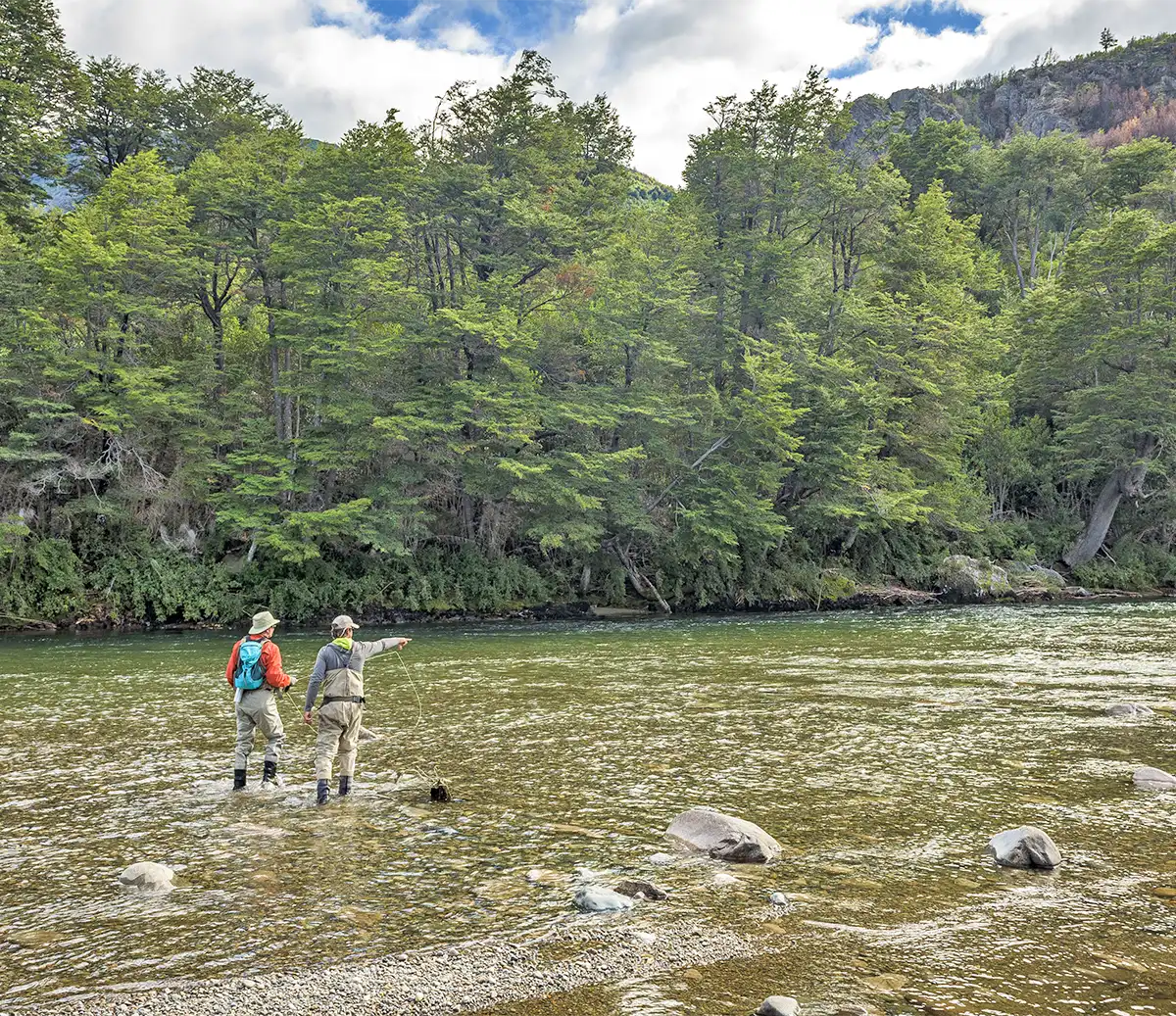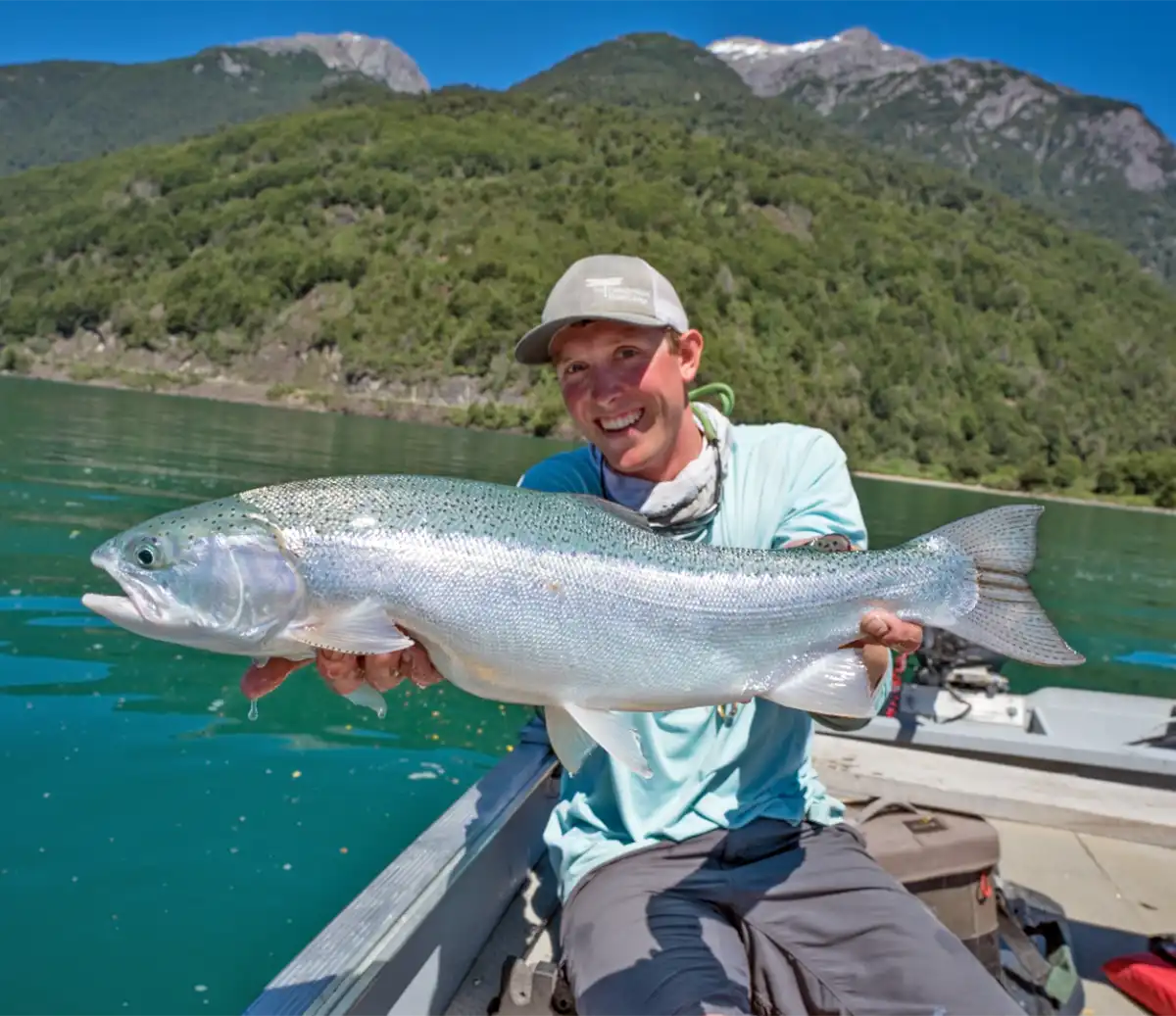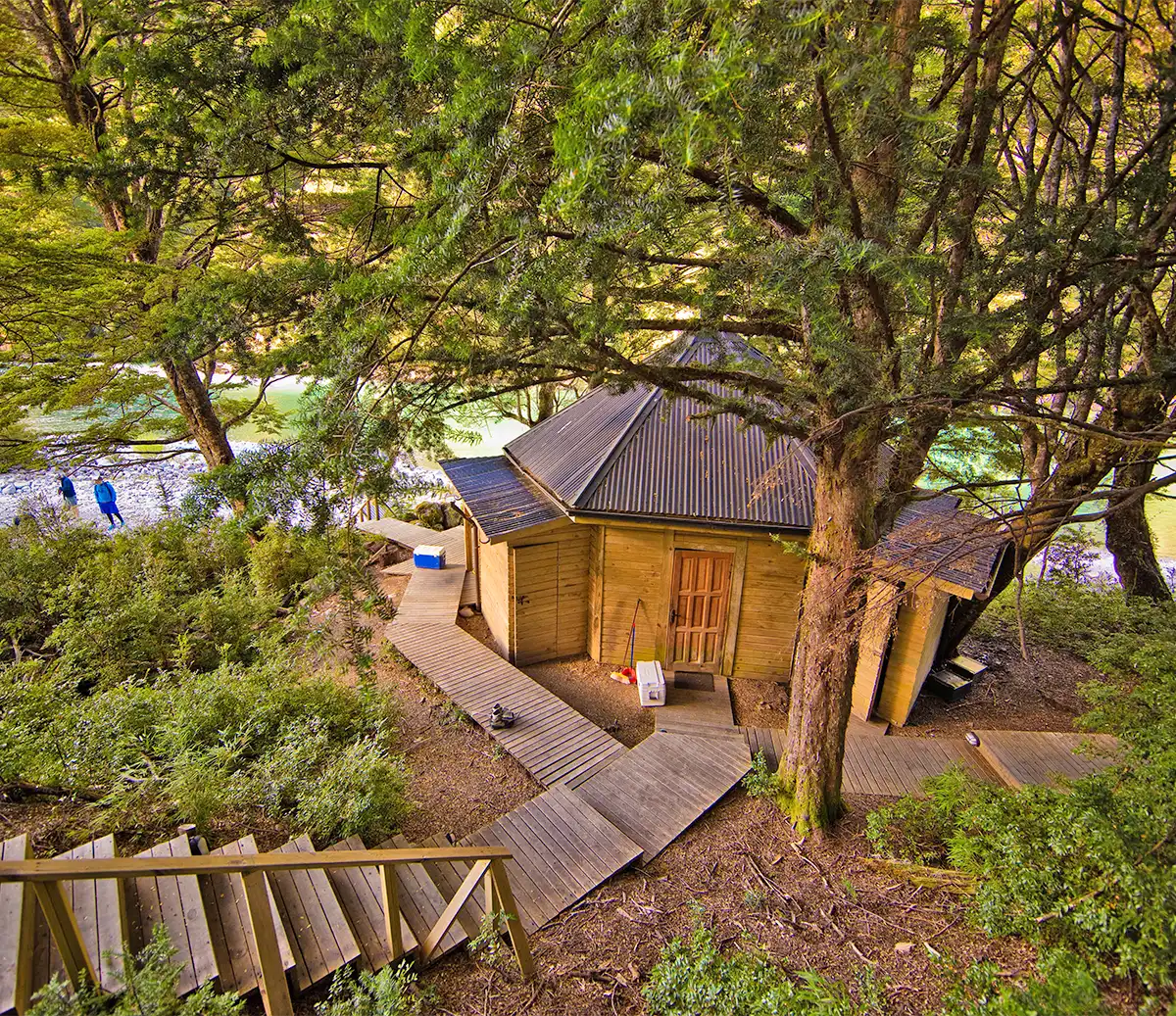One of Patagonia’s most diverse fly fishing programs for wild trout is Patagonian BaseCamp, on the banks of the remote Rio Palena, owned and operated by Marcel Sijnesael.
Marcel traveled the world for several years before settling in this hidden corner of Patagonia, choosing to build his dream lodge in an area as wild as it is beautiful. From his comfortable lodge, Marcel and his guides can access an amazing array of fisheries; it would take, literally, a month of solid exploration and fishing to see all of his options.
“When we came to Northern Chilean Patagonia for the first time we could hardly believe what we encountered; impressed and speechless by the pristine beauty of the landscape, the mountains, the skies and the rivers. It was right then when we decided to make our home here in the wilderness. And since then we have seen many guests leaving with the same fantastic impression; and they come back year after year. No longer are they just our guests, but our friends sharing the same passion.” – Marcel Sijnesael
One of the beauties of Marcel’s location is the dearth of anglers on many of the waters – on most you will see few or no other fishermen during your stay. In addition, using state-of-the-art inflatable catarafts and outboard powered jetboats, he is able to organize two and three day overnight float trips into wilderness rivers, spending the nights at either small riverside cabins, or camping out in comfortable domo tents under the Southern Cross. These are truly a highlight of most guests’ trips, and an opportunity to cast over virgin fish in spectacularly scenic surroundings. As well, the lodge has access to small high mountain lakes, full of heavy-shouldered trout, accessed via short oxcart-pulled carriage rides, horse ride, or for the adventurous, mountain bike. Rounding out the menu are a variety of smaller walk-n-wade steams and creeks, float streams and larger jet boat rivers. It would take a month of solid fishing before you’d repeat a piece of water fishing at Patagonian BaseCamp.
The fish you’ll see in this area are wild, and largely untouched; accurate presentations usually assure success. You need to be prepared for all types of fishing here. At any given time, on any of the fisheries, fish may be looking up and smashing skated dries, cruising deeper, requiring sinking tip lines and streamers; or sipping drifting terrestrials off the banks. Plan on using boats a lot here, whether actually casting from them, or simply using them for transportation to wading areas, as they are a necessary component to accessing the generally wilderness waters.
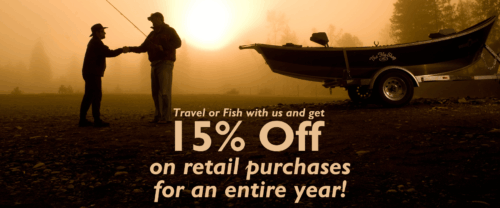
Headed out on your next adventure with us? The Fly ShopⓇ has you covered. As a thank you to our travel guests, enjoy 15% off all retail purchases for a year! — the perfect chance to gear up before your trip.
Whether it’s flies, leaders, apparel or a new rod and reel outfit, we’ve got everything you need to make your journey more comfortable, more successful, and more fun. (some exclusions apply)


